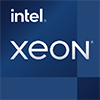
Intel Core i5-4360U Benchmark, Test and specs
Last updated:
The Intel Core i5-4360U has 2 cores with 4 threads and is based on the 4. gen of the Intel Core i5 series. The processor uses a mainboard with the BGA 1168 socket and was released in Q3/2013. The Intel Core i5-4360U scores 626 points in the Geekbench 5 single-core benchmark. In the Geekbench 5 multi-core benchmark, the result is 1,412 points.

| Name: | Intel Core i5-4360U |
|---|---|
| Family: | Intel Core i5 (331) |
| CPU group: | Intel Core i 4000U (26) |
| Architecture: | Haswell U |
| Segment: | Mobile |
| Generation: | 4 |
| Predecessor: | -- |
| Successor: | -- |
CPU Cores and Base Frequency
The Intel Core i5-4360U has 2 CPU cores and can calculate 4 threads in parallel. The clock frequency of the Intel Core i5-4360U is 1.50 GHz (2.90 GHz). The number of CPU cores greatly affects the speed of the processor and is an important performance indicator.
| CPU Cores / Threads: | 2 / 4 |
|---|---|
| Core architecture: | normal |
| Cores: | 2x |
| Hyperthreading / SMT: | Yes |
|---|---|
| Overclocking: | No |
| Frequency: | 1.50 GHz |
| Turbo Frequency (1 Core): | 2.90 GHz |
| Turbo Frequency (2 Cores): | 2.90 GHz |
Internal Graphics
The Intel Core i5-4360U has integrated graphics, called iGPU for short. Specifically, the Intel Core i5-4360U uses the Intel HD Graphics 5000, which has 320 texture shaders and 40 execution units. The iGPU uses the system's main memory as graphics memory and sits on the processor's die.
| GPU name: | Intel HD Graphics 5000 |
|---|---|
| GPU frequency: | 0.20 GHz |
| GPU (Turbo): | 1.10 GHz |
| Compute units: | 40 |
| Shader: | 320 |
| Hardware Raytracing: | No |
| Release date: | Q2/2013 |
| Max. displays: | 3 |
|---|---|
| Generation: | 7.5 |
| Direct X: | 11.1 |
| Technology: | 22 nm |
| Max. GPU Memory: | 2 GB |
| Frame Generation: | No |
Hardware codec support
A photo or video codec that is accelerated in hardware can greatly accelerate the working speed of a processor and extend the battery life of notebooks or smartphones when playing videos.
| h265 / HEVC (8 bit): | No |
|---|---|
| h265 / HEVC (10 bit): | No |
| h264: | Decode / Encode |
| VP8: | No |
| VP9: | No |
| AV1: | No |
|---|---|
| AVC: | Decode / Encode |
| VC-1: | Decode |
| JPEG: | Decode |
Memory & PCIeThe processor can use up to 16 GB memory in 2 (Dual Channel) memory channels. The maximum memory bandwidth is 25.6 GB/s. The memory type as well as the amount of memory can greatly affect the speed of the system. |
|
| Memory type: | Memory bandwidth: |
|---|---|
| DDR3-1600 | 25.6 GB/s |
| Max. Memory: | 16 GB |
| Memory channels: | 2 (Dual Channel) |
| ECC: | No |
| PCIe: | 2.0 x 12 |
| PCIe Bandwidth: | 6.0 GB/s |
Thermal ManagementThe thermal design power (TDP for short) of the processor is 15 W. The TDP specifies the necessary cooling solution that is required to cool the processor sufficiently. The TDP usually gives a rough idea of the actual power consumption of the CPU. |
|
|---|---|
| TDP (PL1 / PBP): | 15 W |
| TDP (PL2): | -- |
| TDP up: | -- |
| TDP down: | -- |
| Tjunction max.: | 100 °C |
Technical details
The Intel Core i5-4360U is made in 22 nm. The smaller the manufacturing process of a CPU, the more modern and energy-efficient it is. Overall, the processor has 3.00 MB cache. A large cache can greatly speed up the processor's speed in some cases such as games.
| Technology: | 22 nm |
|---|---|
| Chip design: | Monolithic |
| Socket: | BGA 1168 |
| L2-Cache: | -- |
| L3-Cache: | 3.00 MB |
| AES-NI: | Yes |
| Operating systems: | Windows 10, Linux |
| Virtualization: | VT-x, VT-x EPT, VT-d |
|---|---|
| Instruction set (ISA): | x86-64 (64 bit) |
| ISA extensions: | SSE4.1, SSE4.2, AVX2 |
| Release date: | Q3/2013 |
| Release price: | -- |
| Part Number: | -- |
| Documents: | Technical data sheet |
Rate this processor
Benchmark results

The benchmark results for the Intel Core i5-4360U have been carefully checked by us. We only publish benchmark results that have been created by us or that have been submitted by a visitor and then checked by a team member. All results are based on and fullfill our benchmark guidelines.
Geekbench 5, 64bit (Single-Core)
Geekbench 5 is a cross plattform benchmark that heavily uses the systems memory. A fast memory will push the result a lot. The single-core test only uses one CPU core, the amount of cores or hyperthreading ability doesn't count.

|
Intel Celeron 6305E
2C 2T @ 1.80 GHz |
||

|
Intel Core i3-3210
2C 4T @ 3.20 GHz |
||

|
Intel Core i7-3667U
2C 4T @ 3.20 GHz |
||
|
|
Intel Core i5-4360U
2C 4T @ 2.90 GHz |
||

|
Intel Core i5-4350U
2C 4T @ 2.90 GHz |
||

|
MediaTek Kompanio 828
8C 8T @ 2.60 GHz |
||

|
MediaTek Dimensity 6080
8C 8T @ 2.40 GHz |
||
Geekbench 5, 64bit (Multi-Core)
Geekbench 5 is a cross plattform benchmark that heavily uses the systems memory. A fast memory will push the result a lot. The multi-core test involves all CPU cores and taks a big advantage of hyperthreading.

|
UNISOC T618
8C 8T @ 2.00 GHz |
||

|
Intel Core i5-2540M
2C 4T @ 2.60 GHz |
||

|
AMD FX-4170
4C 4T @ 4.40 GHz |
||
|
|
Intel Core i5-4360U
2C 4T @ 2.90 GHz |
||

|
AMD Phenom II X4 940
4C 4T @ 3.00 GHz |
||

|
AMD A10-7800
4C 4T @ 3.70 GHz |
||

|
Intel Pentium G3420
2C 2T @ 3.20 GHz |
||
iGPU - FP32 Performance (Single-precision GFLOPS)
The theoretical computing performance of the internal graphics unit of the processor with simple accuracy (32 bit) in GFLOPS. GFLOPS indicates how many billion floating point operations the iGPU can perform per second.
|
|
HiSilicon Kirin 990 4G
ARM Mali-G76 MP16 @ 0.60 GHz |
||

|
Qualcomm Snapdragon 845
Qualcomm Adreno 630 @ 0.70 GHz |
||

|
Intel Core i5-7260U
Intel Iris Plus Graphics 640 @ 0.95 GHz |
||
|
|
Intel Core i5-4360U
Intel HD Graphics 5000 @ 1.10 GHz |
||

|
Intel Core i7-4550U
Intel HD Graphics 5000 @ 1.10 GHz |
||

|
Intel Core i5-4278U
Intel Iris Graphics 5100 @ 1.10 GHz |
||

|
Intel Core i7-4650U
Intel HD Graphics 5000 @ 1.10 GHz |
||
Estimated results for PassMark CPU Mark
Some of the CPUs listed below have been benchmarked by CPU-monkey. However the majority of CPUs have not been tested and the results have been estimated by a CPU-monkey’s secret proprietary formula. As such they do not accurately reflect the actual Passmark CPU mark values and are not endorsed by PassMark Software Pty Ltd.

|
Intel Core i5-670
2C 4T @ 3.46 GHz |
||

|
Intel Core i5-3210M
2C 4T @ 3.10 GHz |
||

|
Intel Xeon D-1602
2C 4T @ 2.90 GHz |
||
|
|
Intel Core i5-4360U
2C 4T @ 2.90 GHz |
||

|
Qualcomm Snapdragon 712
8C 8T @ 2.30 GHz |
||

|
Intel Core i7-4610Y
2C 4T @ 1.70 GHz |
||

|
Intel Celeron N4100
4C 4T @ 2.40 GHz |
||
Cinebench R15 (Single-Core)
Cinebench R15 is the successor of Cinebench 11.5 and is also based on the Cinema 4 Suite. Cinema 4 is a worldwide used software to create 3D forms. The single-core test only uses one CPU core, the amount of cores or hyperthreading ability doesn't count.

|
Intel Celeron G1850
2C 2T @ 2.90 GHz |
||

|
Intel Core i3-3210
2C 4T @ 3.20 GHz |
||

|
Intel Core i5-5250U
2C 4T @ 2.70 GHz |
||
|
|
Intel Core i5-4360U
2C 4T @ 2.90 GHz |
||

|
Intel Pentium G3250T
2C 2T @ 2.80 GHz |
||

|
Intel Pentium G3240T
2C 2T @ 2.70 GHz |
||

|
Intel Pentium G2030
2C 2T @ 3.00 GHz |
||
Cinebench R15 (Multi-Core)
Cinebench R15 is the successor of Cinebench 11.5 and is also based on the Cinema 4 Suite. Cinema 4 is a worldwide used software to create 3D forms. The multi-core test involves all CPU cores and taks a big advantage of hyperthreading.

|
Intel Core i7-7Y75
2C 4T @ 2.80 GHz |
||

|
AMD Phenom II X4 805
4C 4T @ 2.50 GHz |
||

|
AMD Phenom II X4 905e
4C 4T @ 2.50 GHz |
||
|
|
Intel Core i5-4360U
2C 4T @ 2.90 GHz |
||

|
Intel Core i5-L16G7
5C 5T @ 1.80 GHz |
||

|
Intel Pentium Gold 4415U
2C 4T @ 2.30 GHz |
||

|
Intel Core i3-6100U
2C 4T @ 2.30 GHz |
||
Benchmarks

Geekbench 5 (SC)
2,488 entries
2,488 entries

Geekbench 5 (MC)
2,461 entries
2,461 entries

FP32 SP (iGPU)
2,039 entries
2,039 entries

PassMark CPU-Mark
2,392 entries
2,392 entries

Cinebench R15 (SC)
1,106 entries
1,106 entries

Cinebench R15 (MC)
1,101 entries
1,101 entries

Geekbench 3 (SC)
942 entries
942 entries

Geekbench 3 (MC)
938 entries
938 entries

Cinebench R11.5 (SC)
825 entries
825 entries

Cinebench R11.5 (MC)
836 entries
836 entries

Cinebench R11.5 iGPU
383 entries
383 entries
Popular comparisons
back to index







